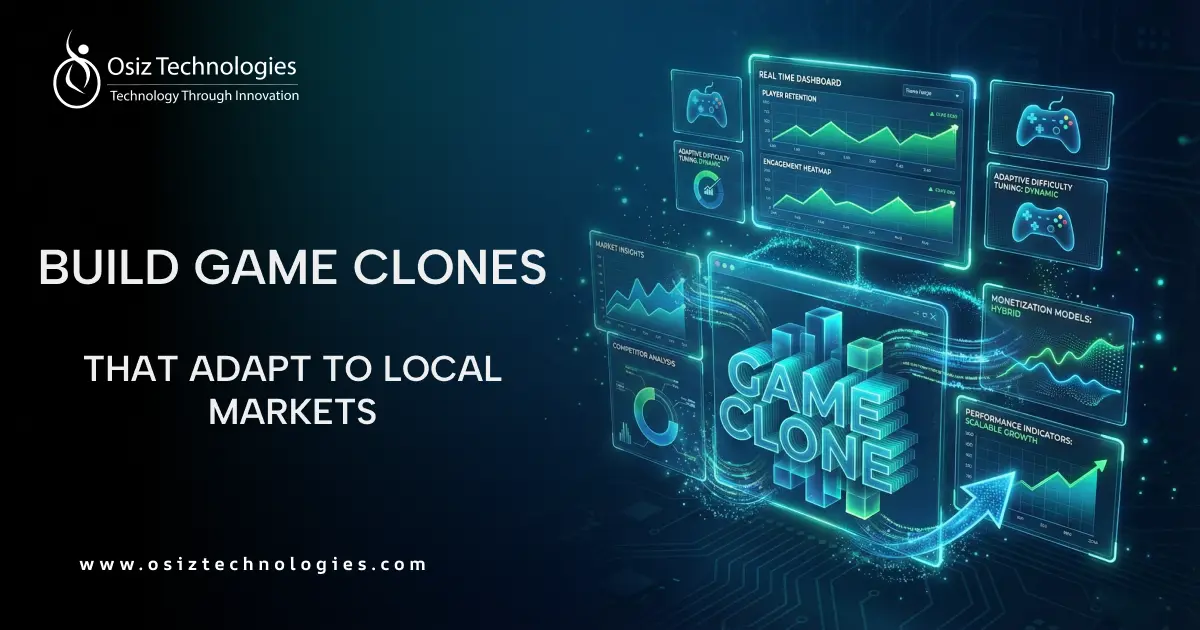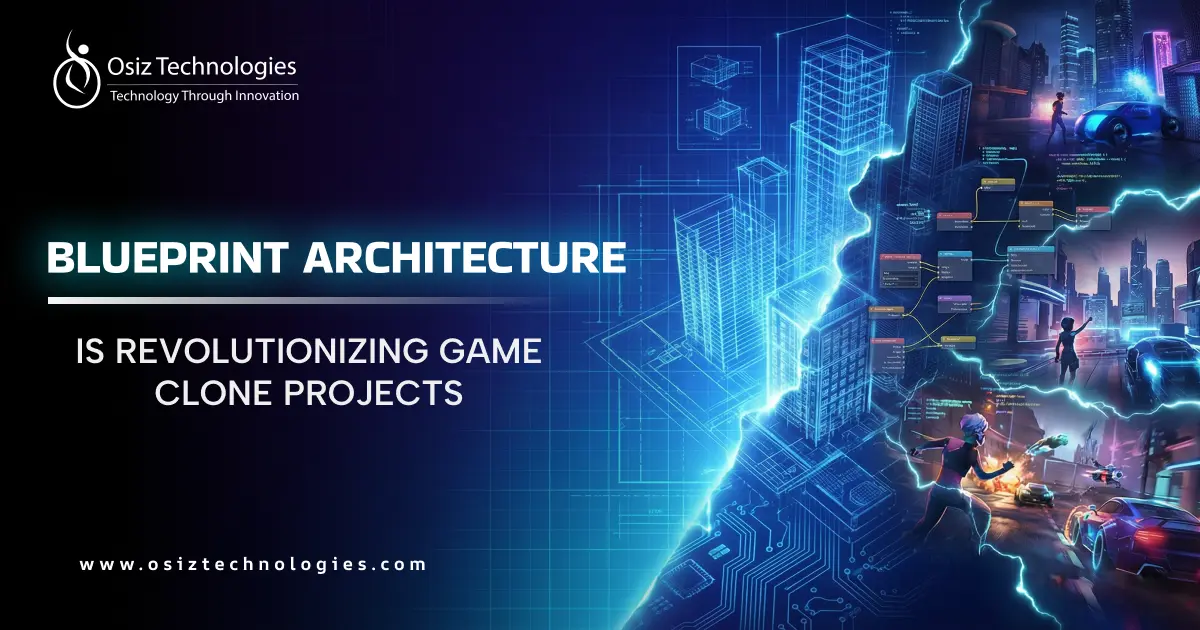Despite looming deadlines and production challenges, mastering the stages of game development makes everything fall into place. We'll share insider secrets to keep things interesting! Game creators are true fanatics who live and breathe their craft.
Discover the six stages of game development and learn what happens behind the scenes of your favorite games. From initial planning to post-launch bug fixes, this blog covers it all. Join us as we dive into character design, gameplay, and the thrill of launching a game. Remember, one magical game can captivate millions of gamers.
Let’s Get In!
Step-by-Step Game Development Process
The game development process typically consists of six main stages: pre-production, production, testing, pre-launch, launch, and post-launch. The scale and requirements of the game determine the specifics of each phase. As the best game development company Osiz developers follow these significant steps for offering immersive experiences to the players.
Pre-Production
The pre-production stage is crucial for planning and setting clear project goals. Managers and product owners determine the project's objectives. They conduct market research identify the target audience and decide on the platform. They allocate resources and create strategies. All these efforts culminate in a detailed Game Design Document (GDD). The GDD encompasses the game's concept mechanics, storyline characters, and business model and serves as a blueprint for the whole creation process. This stage ensures clarity on what type of game to be developed. It prepares the team for the production phase.
Production
The production stage involves turning the concepts and plans from pre-production into reality. Characters, In-game object locales, and user interface elements are all created during this phase using 2D/3D graphics and visual effects. Programmers work on the game's code to ensure playability, while sound engineers and composers develop the game's audio. Milestones like the First Playable Fully Playable Sample Pre-Alpha, Alpha, and Beta versions mark progress. Each stage refines the game further. The goal is to create a complete polished product ready for the final release.
Testing
Testing ensures the game's quality and playability by identifying and fixing bugs glitches and other issues. Quality Assurance (QA) teams test every feature also analyze each game mechanic. They carefully assess the game's visual performance and overall player experience. Various types of testing, including stress testing bug hunting, and audio checks, are conducted. Feedback from these tests helps developers make necessary adjustments. This ensures the game meets high standards before moving to the pre-launch phase.
Pre-Launch
In the pre-launch stage Beta version of the game is released to a select group of players for feedback. This phase involves showcasing the game through promotional videos. Public gaming events are also a focal point. Insights are gathered from industry experts, pro players bloggers, and journalists. The feedback collected helps game developers make final adjustments and improvements. Pre-launch is crucial for marketing and building anticipation, and it sets the timeline for finalizing the game based on public response.
Launch
The launch stage represents the game's formal release. Our game developers release the final version to the public, eagerly anticipating player reactions. This stage involves significant marketing efforts to ensure a successful launch. However, the launch does not mark the end of game development. Developers must be prepared to address any immediate issues that arise, ensuring a smooth player experience. The initial player feedback during this stage is invaluable for post-launch improvements.
Post-Launch
The post-launch stage involves ongoing support and updates for the game. Game developers address minor bugs and issues reported by players, ensuring the game runs smoothly. This phase in game development may also include releasing additional content, updates, and expansions to keep players engaged. Monitoring player feedback and online forums helps game developers identify and fix problems quickly. Post-launch support is essential for maintaining player satisfaction and the game's long-term success.
Concluding Thoughts
Often players think that game development is a process filled with fun and enjoyment, but actually, it is a serious process. Video game development is a big ride for our developers, handling the falls in the ride and stepping up makes the game a polished one. If you are looking for the best game developers globally to build your gaming project, partner with Osiz for top-notch expertise, dedication, and a proven track record. As the best Game Development Company bring your vision to life and create games that captivate audiences worldwide.
Listen To The Article












